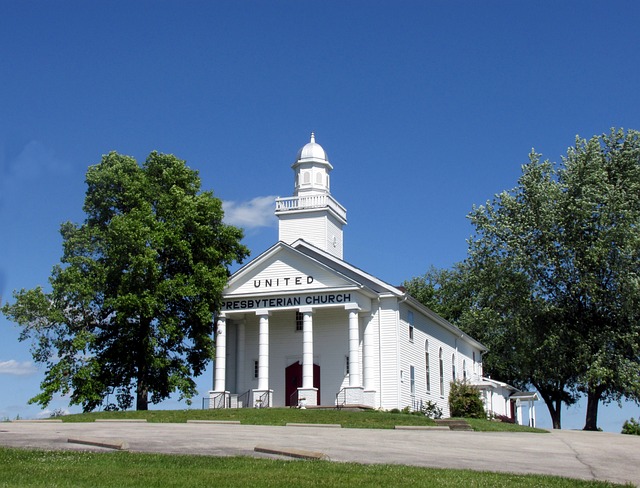Presbyterians do not typically believe in the veneration or intercession of saints as practiced in some other Christian denominations.
Table of Contents
The Role of Saints in Presbyterian Theology
Do Presbyterians believe in saints? This is a question that often comes up when discussing Presbyterian theology. While the role of saints is prominent in other Christian denominations, it may not be as central in Presbyterianism. However, it is important to note that Presbyterians do recognize the importance of saints in the broader Christian tradition.
In Presbyterian theology, the focus is primarily on the belief in the priesthood of all believers. This means that every Christian has direct access to God and does not require intermediaries such as saints to communicate with Him. Presbyterians believe that through Jesus Christ, all believers have been granted the privilege of approaching God directly.
This emphasis on the priesthood of all believers does not mean that Presbyterians completely disregard the role of saints. Rather, they view saints as exemplary individuals who have lived out their faith in a way that can inspire and guide others. Saints are seen as models of Christian virtue and devotion, and their lives can serve as examples for believers to follow.
Presbyterians also recognize the importance of the communion of saints. This concept refers to the belief that all believers, both living and deceased, are united in the body of Christ. This unity extends beyond the boundaries of time and space, connecting all believers throughout history. In this sense, Presbyterians believe that saints are still part of the Christian community and can be seen as spiritual companions on the journey of faith.
While Presbyterians do not pray to saints or seek their intercession, they do acknowledge their significance and may commemorate them on certain occasions. For example, on All Saints’ Day, which is celebrated on November 1st, Presbyterians may remember and honor the lives of saints who have gone before them. This day serves as a reminder of the faithfulness and dedication of those who have paved the way for future generations.
It is also worth noting that the Presbyterian Church has its own tradition of recognizing individuals who have made significant contributions to the faith. These individuals, known as “saints” in the Presbyterian context, are not considered to have any special powers or abilities. Instead, they are honored for their faithful service and dedication to the church.
In conclusion, while the role of saints may not be as prominent in Presbyterian theology as it is in other Christian denominations, Presbyterians do recognize the importance of saints in the broader Christian tradition. They view saints as models of Christian virtue and devotion, and their lives can serve as examples for believers to follow. Presbyterians also acknowledge the communion of saints, believing that all believers, both living and deceased, are united in the body of Christ. While they do not pray to saints or seek their intercession, Presbyterians may commemorate them on certain occasions. Ultimately, the belief in the priesthood of all believers remains central in Presbyterian theology, emphasizing the direct access that every Christian has to God.
Understanding the Presbyterian Perspective on Intercession of Saints

Do Presbyterians believe in saints? This is a question that often comes up when discussing Presbyterian beliefs. To understand the Presbyterian perspective on the intercession of saints, it is important to delve into their theological teachings and traditions.
Presbyterians, like many other Protestant denominations, have a different view on saints compared to Catholicism and Eastern Orthodox Christianity. In these traditions, saints are revered and believed to have the ability to intercede on behalf of believers. However, Presbyterians do not share this belief.
The Presbyterian Church holds a strong belief in the priesthood of all believers. This means that every Christian has direct access to God through Jesus Christ, without the need for intermediaries such as saints. Presbyterians believe that Jesus is the one and only mediator between God and humanity, and that believers can approach God directly in prayer.
This belief is rooted in the Protestant Reformation, which sought to reform the Catholic Church in the 16th century. One of the key teachings of the Reformation was the idea of sola scriptura, or the belief that the Bible is the ultimate authority in matters of faith and practice. Presbyterians, therefore, base their beliefs and practices solely on what is taught in the Bible.
When it comes to the intercession of saints, Presbyterians do not find biblical support for this practice. They believe that the Bible does not teach or encourage the veneration or invocation of saints. Instead, they emphasize the importance of praying directly to God and seeking His guidance and help.
Presbyterians also believe in the communion of saints, which is the belief that all believers, both living and deceased, are united in Christ. They believe that all Christians are part of the body of Christ and share a spiritual bond with one another. However, this does not mean that they believe in the intercession of saints.
In Presbyterian worship services, the focus is on God and His Word. Prayers are directed to God alone, and there is no mention or invocation of saints. The emphasis is on personal relationship with God and seeking His guidance and presence.
It is important to note that while Presbyterians do not believe in the intercession of saints, they still hold a deep respect for those who have gone before them in the faith. They recognize the contributions and examples of faithful Christians throughout history, but they do not believe that these individuals have any special ability to intercede on behalf of believers.
In conclusion, Presbyterians do not believe in the intercession of saints. They believe in the priesthood of all believers and the direct access to God through Jesus Christ. Their beliefs are rooted in the Bible and the Protestant Reformation. While they hold a deep respect for those who have gone before them in the faith, they do not believe in the veneration or invocation of saints. Instead, they emphasize the importance of personal relationship with God and seeking His guidance and presence in prayer.
Exploring the Historical Context of Presbyterian Views on Saints
Do Presbyterians believe in saints? It’s a question that many people have asked, and the answer is not as straightforward as you might think. To understand the Presbyterian views on saints, it’s important to explore the historical context in which these beliefs developed.
Presbyterianism is a branch of Protestant Christianity that originated in Scotland during the 16th century. It was heavily influenced by the teachings of John Calvin, a French theologian who emphasized the sovereignty of God and the authority of Scripture. Calvin’s teachings had a significant impact on the development of Presbyterian theology, including their views on saints.
In the early days of the Protestant Reformation, there was a strong reaction against the veneration of saints that was prevalent in the Catholic Church. Protestants believed that the Catholic practice of praying to saints and seeking their intercession was a form of idolatry and detracted from the sole authority of God. This rejection of saintly intercession became a defining characteristic of Protestant theology, including Presbyterianism.
However, it’s important to note that Presbyterians do not completely dismiss the concept of saints. They believe in the “communion of saints,” which is the belief that all believers, both living and dead, are united in Christ. This means that Presbyterians acknowledge the existence of saints, but they do not believe in the intercession of saints or the need to pray to them.
The Presbyterian view on saints is rooted in their understanding of the priesthood of all believers. They believe that every Christian has direct access to God through Jesus Christ and does not need to rely on the intercession of saints. Instead, they emphasize the importance of personal prayer and a direct relationship with God.
Another factor that shaped Presbyterian views on saints is their emphasis on the authority of Scripture. Presbyterians believe that the Bible is the inspired word of God and the ultimate authority for faith and practice. They rely on the Bible as their guide for understanding God’s will and do not place the same level of importance on the teachings and traditions of the saints.
In summary, Presbyterians do believe in saints, but their beliefs differ from those of the Catholic Church. They reject the intercession of saints and the practice of praying to them, emphasizing instead the priesthood of all believers and the authority of Scripture. Understanding the historical context of Presbyterianism helps shed light on their views on saints and how they differ from other Christian denominations.
So, the next time someone asks you if Presbyterians believe in saints, you can confidently explain that while they do acknowledge the existence of saints, their beliefs are rooted in a different understanding of the role of saints in the Christian faith.
Examining the Influence of Reformation on Presbyterian Beliefs about Saints
When it comes to religious beliefs, there are often many misconceptions and misunderstandings. One such misconception is whether Presbyterians believe in saints. To understand this, we need to examine the influence of the Reformation on Presbyterian beliefs about saints.
The Reformation, which took place in the 16th century, was a significant movement that sought to reform the Catholic Church. One of the key issues that the reformers had with the Catholic Church was its veneration of saints. They believed that this practice detracted from the central focus on Christ and placed too much emphasis on human intercession.
As a result, the reformers, including John Calvin, who is considered one of the key figures in the Reformation, rejected the veneration of saints. They argued that there was no biblical basis for praying to or seeking the intercession of saints. Instead, they emphasized the direct relationship between the individual believer and God.
This rejection of the veneration of saints had a profound impact on Presbyterian beliefs. Presbyterians, who trace their roots back to the Reformation, do not believe in the intercession of saints. They believe that believers have direct access to God through Christ and do not need to go through any intermediary, including saints.
However, it is important to note that this does not mean that Presbyterians completely disregard the saints mentioned in the Bible. They recognize the importance of these individuals in the history of Christianity and their contributions to the faith. They view them as examples of faith and virtue, but not as intercessors or mediators between God and humanity.
Presbyterians also believe in the communion of saints, which is the belief that all believers, both living and deceased, are united in Christ. They believe that the church is made up of all believers, past and present, and that there is a spiritual connection between them. This belief in the communion of saints is different from the Catholic understanding of saints, but it does acknowledge the role of believers in the larger body of Christ.
In summary, Presbyterians do not believe in the veneration or intercession of saints. This belief stems from the influence of the Reformation, which rejected these practices as lacking biblical basis. However, Presbyterians do recognize the importance of the saints mentioned in the Bible and view them as examples of faith and virtue. They also believe in the communion of saints, which emphasizes the spiritual connection between all believers. Understanding these beliefs is crucial in dispelling misconceptions and promoting a better understanding of Presbyterian theology.
Conclusion
Yes, Presbyterians believe in saints.


